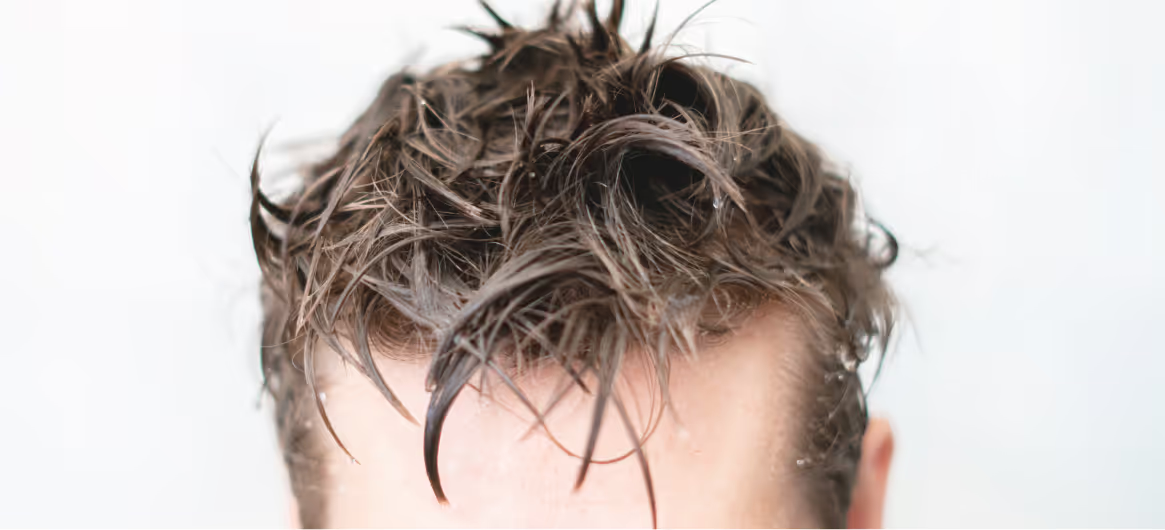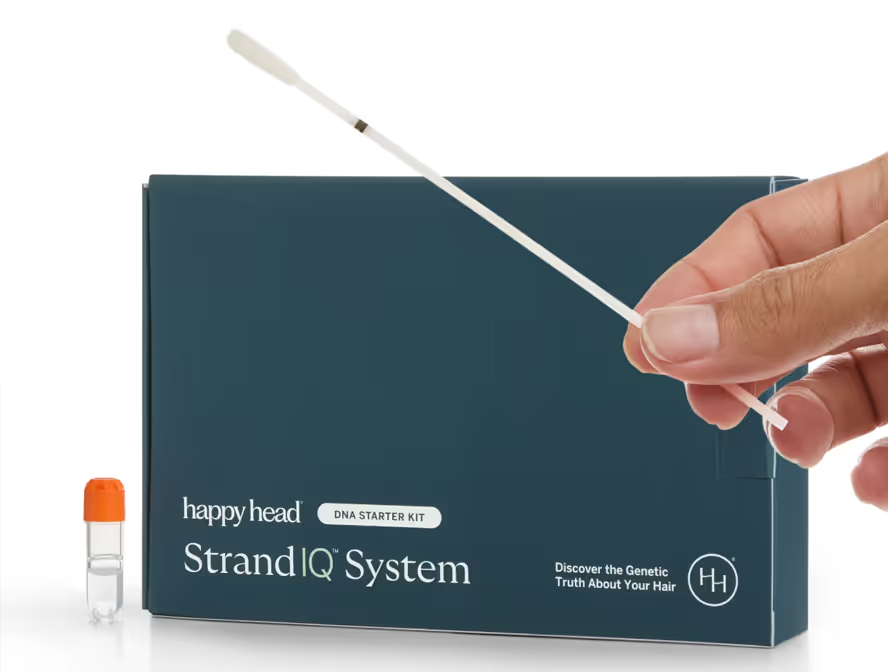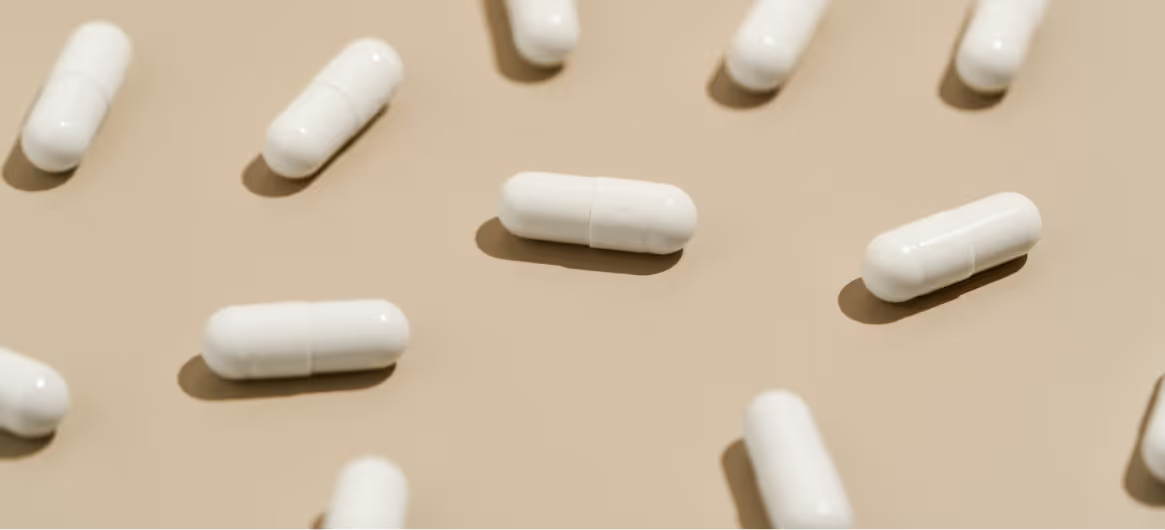A well-hydrated scalp is more than just a comfort—it's essential for maintaining a healthy scalp barrier, supporting hair growth, and preventing flakiness, itchiness, and inflammation. When your scalp lacks proper hydration, your hair can become dry, brittle, and more prone to breakage.
What Is Scalp Hydration Impairment?
Scalp hydration impairment refers to the scalp’s inability to retain and regulate moisture. This condition often leads to dry, irritated, or flaky skin, and may contribute to more serious issues like scalp inflammation and hair thinning. While hydration habits and environmental factors play a role, your genes also serve as a critical part of the equation.
Aquaporins, Claudins & Genetic Influence
The integrity of your scalp’s moisture barrier is regulated by two major players:
- Aquaporins (AQPs) – These are water-channel proteins in your skin cells. Specifically, AQP3 is crucial for transporting water, glycerol, and urea across cell membranes. It helps regulate hydration, skin repair, and wound healing.
- Claudins (CLDNs) – These tight junction proteins help form a barrier that controls what passes between scalp cells. CLDN1 is especially important in maintaining scalp water homeostasis and barrier integrity.
Genetic variants in the AQP3 or CLDN1 genes can reduce the effectiveness of these proteins, impairing your skin’s ability to retain moisture and protect against environmental damage. This is why some individuals are genetically predisposed to experience chronic scalp dryness, even with regular care.
Personalized Care Based on Your Risk Level
Your hydration needs depend not only on your habits but also your genetic predisposition. Here’s how to tailor your approach:
Low Risk: Maintain the Basics
If your Happy Head StrandIQ™ analysis has identified you as being at a low risk for scalp hydration impairment, then simple interventions may be the best place to start:
- Moisturizing treatments
To help keep your scalp healthy and hydrated, consider products like deep conditioning to maintain moisture. - Gentle exfoliation
Gently massage your scalp on wash days to remove dirt and buildup to allow better absorption of hydrating products. - Hydration support
Drink at least two to three cups of water daily to keep your scalp supported from within.
Medium Risk: Step Up Hydration
If you’ve been identified as being at a moderate risk for scalp hydration impairment—or if you’ve noticed your scalp feeling dry, irritated, or flaky despite lower-risk interventions—then it may be time to step up your scalp care routine.
- Weekly masks
Weekly scalp masks and conditioners help to focus hydration to the scalp and skin barrier repair. - Natural oils
Experiment with coconut oil or essential oils like tea tree or argan for added moisture. - Nutrient-rich diet
Prioritize a diet rich in hydration-supporting foods like leafy greens, cucumbers, berries, and citrus fruits.
High Risk: Strengthen and Protect
If your StrandIQ™ analysis identified you as being at a high risk for scalp hydration impairment, then more intensive treatment options may be required.
- Consistent moisture routines
Use moisturizing shampoos and leave-in conditioners regularly—but avoid overwashing. - Post-shower tonics
Apply scalp tonics or hydrating serums to lock in moisture after washing. - Increased water intake
Aim for four to six cups of water daily, especially in dry climates or after sweating. - Scalp oils & masks
Apply coconut or jojoba oil treatments one to two times per week for deep hydration. - Consult a specialist
If dryness is persistent or worsens, consult with a Happy Head dermatologist or Care Manager for tailored solutions.
Environmental and Lifestyle Factors
Even with favorable genetics, environmental triggers can dehydrate your scalp. Pay attention to:
- Climate: Cold, dry air or intense sun exposure can draw moisture from your scalp.
- Heat Styling: Blow dryers and flat irons may dry out both your hair and scalp.
- Product Build-Up: Silicone-heavy or harsh products may block moisture absorption.
- Washing Habits: Overwashing can strip essential oils that help keep your scalp hydrated.
Adapting your habits to these factors can improve scalp health long-term.
Genetics Meets Personalized Scalp Care
Understanding your scalp’s genetic makeup gives you an edge in designing a hydration strategy that works. For those with a genetic predisposition to scalp hydration impairment, products that support skin barrier function—such as custom hair care from Happy Head—can help close the gap between genetics and healthy scalp hydration.
Resources
StrandIQ SNP Marker Count: 3
StrandIQ Genes for Trait:
AQP3, CLDN1, P3H2-AS1
References:
Blaydon, D.C., & Kelsell, D.P. (2014). Defective channels lead to an impaired skin barrier. Journal of Cell Science, 127(20), 4343–4350. PMID: 25179597.
De Benedetto, A., et al. (2009). Variants in the tight junction gene, claudin-1, are associated with atopic dermatitis in two American populations and may contribute to skin barrier dysfunction. Journal of Allergy and Clinical Immunology, 123(2), S150.
Draelos, Z. (2012). Aquaporins: an introduction to a key factor in the mechanism of skin hydration. Journal of Clinical and Aesthetic Dermatology, 5(7), 53–56. PMID: 22798977.
Kim, J.E., et al. (2010). Tight junction defects in patients with atopic dermatitis. Journal of Allergy and Clinical Immunology, 126(4), 667–670.e3. PMID: 20659410.
Naval, J., et al. (2014). Genetic polymorphisms and skin aging: the identification of population genotypic groups holds potential for personalized treatments. Clinical, Cosmetic and Investigational Dermatology, 7, 207–214. PMID: 25061327.
Runswick, S.K., et al. (2001). Decreased CLDN1 expression leads to increased transepidermal water loss and skin dehydration in aged human skin. Journal of Dermatological Science, 81(3), 145–151. PMID: 26336250.
Yu, H.S., et al. (2015). Claudin-1 polymorphism modifies the effect of mold exposure on the development of atopic dermatitis and production of IgE. Journal of Allergy and Clinical Immunology, 136(4), 996–998.e8. PMID: 26220782.
This content, including StrandIQ™ DNA analysis reports and any Happy Head products and/or services referenced therein, is for informational and cosmetic purposes only. It is not intended to diagnose, treat, cure, or prevent any disease. This content does not constitute medical advice and should not be used to make healthcare decisions. References to prescription treatments are educational in nature. Always consult a licensed healthcare professional for any medical concerns or treatment decisions.










.avif)

